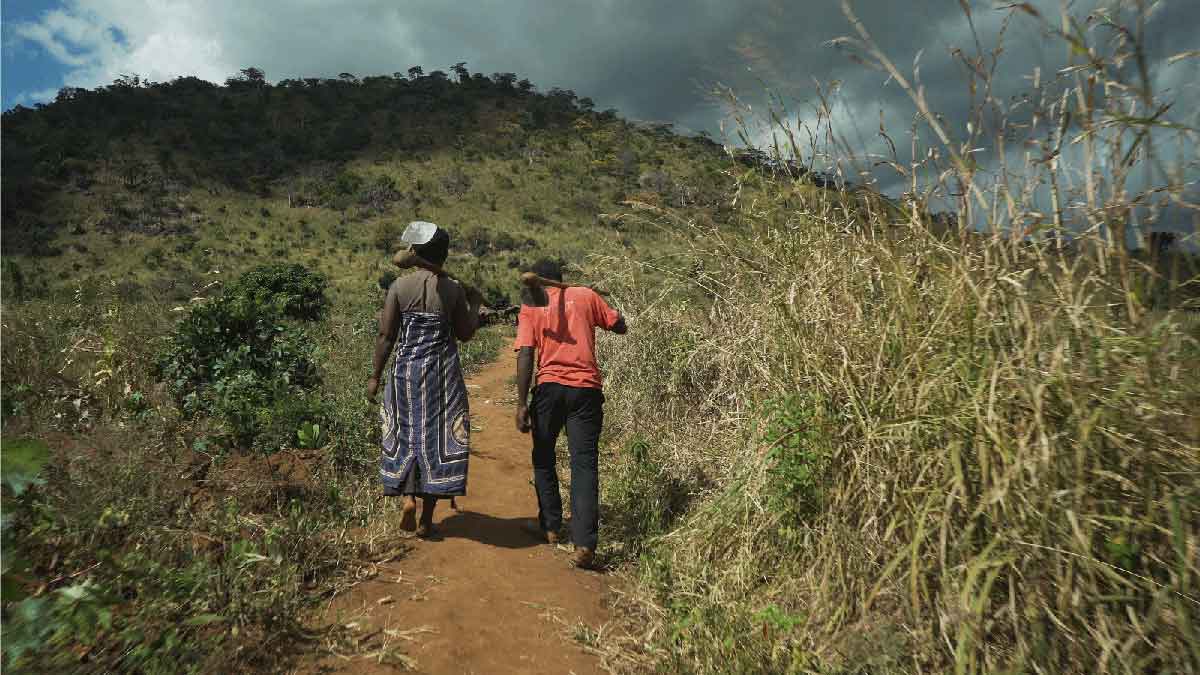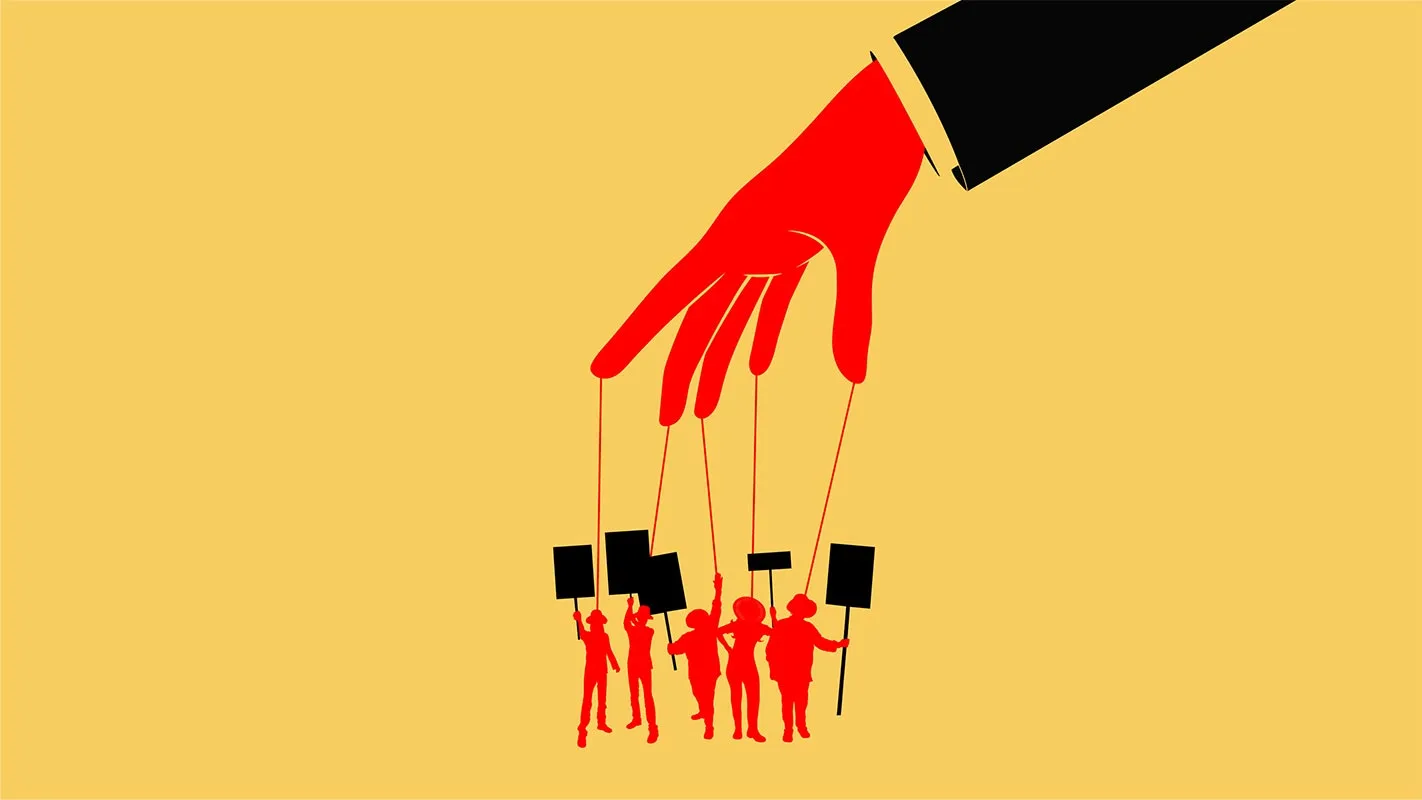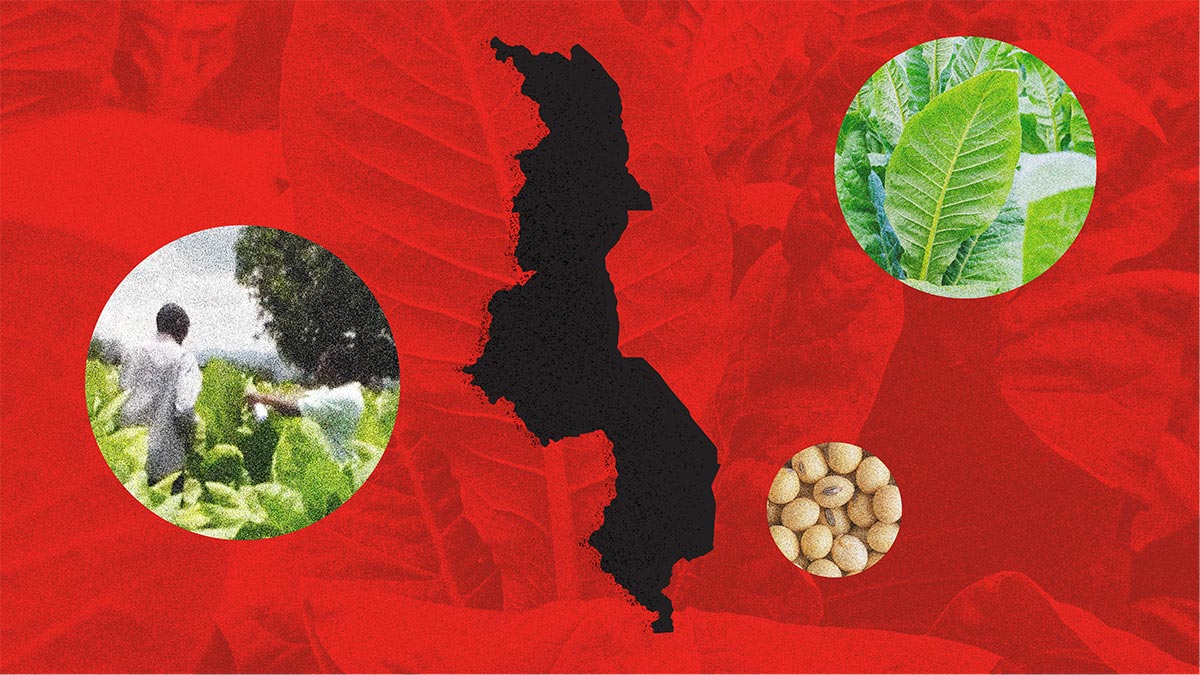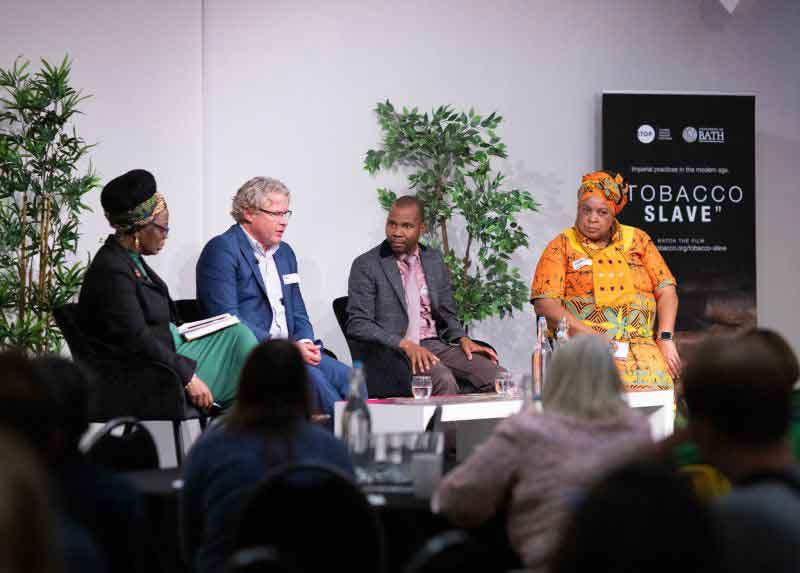- Resources
- News
-
-
Get Email Updates
Sign up for STOP's emails and never miss an update on our latest work and the tobacco industry's activity.
-
Get Funding
Ready to tackle industry interference? You could be eligible for a grant.
-
Share a Tip
Do you have information on tobacco industry misconduct in your country? Let us know.
-
Get Email Updates

A lot of what we hear about the tobacco industry comes from the tobacco industry. Because their products and practices cause so much harm all across the supply chain, tobacco companies strive to control the narratives around their business.
This includes narratives around growing tobacco. Look at the website or ESG (environmental, social and governance) report of any of the Big Four international tobacco companies and you might be convinced that farmers are thriving. But when farmers themselves speak, many paint a very different picture.
A new film called “Tobacco Slave,” produced by the Tobacco Control Research Group at the University of Bath, highlights the poverty and hazardous working conditions experienced by many Malawian tobacco farmers and their families. The film examines the historical and current systems that perpetuate this inequity, featuring interviews with experts who illuminate how we got to where we are today. Four farmers in Malawi share—in their own words—what their experience has been like growing the tobacco that likely ends up in cigarettes for the world’s biggest tobacco companies.

…When we go to the market, after all our efforts in production, it looks like we are giving a donation to the tobacco companies and not selling a product.
James Sabwe, Malawian tobacco farmer
Growing tobacco traps farmers in a cycle of poverty
The contract system may make growing tobacco sound like a safe bet to farmers. Under this system, farmers sign contracts with tobacco leaf-buying companies, who provide farmers with the supplies they need to grow tobacco at no cost up-front. The cost for these supplies is then deducted from farmers’ payments at the end of the season. However, the leaf companies determine both the cost of these supplies and the grade of the resulting crop and price the farmer will receive. If they wish to, they can under-grade and underprice crops. High deductions for the supply costs and low payments for the crops can leave farmers with very little profit, or in debt, at the end of the season.
James Sabwe, one of the farmers interviewed for the film, offered his perspective. He said, “Since I started growing tobacco, I haven’t profited, because the auction floor prices are so low. When we go to the market, after all our efforts in production, it looks like we are giving a donation to the tobacco companies and not selling a product.”
The extreme imbalance in profits between the farmers, often located in low- and middle-income countries, and large tobacco companies, based in high-income countries, highlights the inequities this system perpetuates. The farmers are aware of this imbalance. Sabwe added, “…one thing that does not surprise me, is that the directors and managers of these companies are driving expensive cars, from the same tobacco trade we are all working in.” The film states that the world’s six largest cigarette manufacturers make profits of around US $55 billion annually. Yet more than 96% of Malawians earn less than US $5.50 per day.
The two leaf-buying companies the farmers in the film have worked with are Limbe Leaf and Alliance One, which supply tobacco to some of the world’s biggest tobacco companies: Imperial Brands, British American Tobacco and Philip Morris International. Because these global cigarette corporations tend to be distanced from the growers, geographically and via intermediaries in the supply chain, it is easier for them to minimize their role in this inequity and shift liability to entities that work more closely with the growers.
Growing tobacco harms children
The industry claims it is taking action to reduce child labor in tobacco growing, but its efforts have yet to eliminate this practice (one estimate suggests that 1.3 million children around the world are involved in growing tobacco). It typically overlooks the root cause of child labor in tobacco growing: endemic poverty among farmers, which is linked to the amount they can earn for their crop.
The farmers in the film talk about how they have to recruit family members, including their children, to help grow tobacco. Ellen Mkandawire, one of the farmers interviewed for the film who grows tobacco under the contract system, said, “I cannot manage the whole of my land alone.” Without the means to hire additional workers, she needs her children to help her before and after school.
Growing and harvesting tobacco is hazardous work. Handling tobacco leaf can lead to green tobacco sickness, a type of nicotine poisoning, which can be especially harmful to children. Its symptoms can resemble malaria, with headaches, dizziness, nausea, vomiting and other symptoms. Mkandawire shared that they were only recently told about this danger. She said they were encouraged to purchase long gloves to protect themselves when handling tobacco leaf, but added, “we don’t make enough money after sales to enable us to buy the recommended attires that we should be wearing during harvesting.”
Children on tobacco farms face other dangers. Another farmer interviewed for the film, Prince Makamu, said, “When we nurse the seedlings, we use chemicals which are dangerous to our children who help us. Suddenly, you find that they have swallowed some and they die.” These tragedies, he pointed out, could be prevented if children did not have to help grow tobacco.
The roots of this practice started centuries ago, and are perpetuated today
The film examines the colonial roots of the global tobacco industry and parallels in the neo-colonial practices observed today in tobacco growing. In both the past and the present, resources are extracted by low- or unpaid labor and profits from these resources flow to high-income countries, exacerbating inequity.
Rachel Kitonyo-Devotsu, Regional Manager, Africa at the McCabe Centre for Law and Cancer highlights in the film how the money flows from Malawi back to a major tobacco company’s headquarters in the United Kingdom: “Imperial Tobacco repatriates a lot of the profit back to the U.K. So the profit is not even remaining in Malawi. So we have a dangerous crop. It’s harming the environment. It’s harming the farmers. The farmers are not making an income. Malawi is not making an income, so that a company that’s in the U.K. can make an income?” This is reminiscent of practices of the company that eventually became Imperial, the Wills company, founded in Bristol, England. The Wills company has been accused of acquiring and profiting from tobacco produced by enslaved people.
Even though tobacco use is slowly declining around the world, Big Tobacco goes to great lengths to keep the tobacco epidemic going. It fights tobacco control measures that would reduce tobacco use, lobbies for tobacco-friendly policies and markets its products to the next generation, alongside many other tactics. These actions sustain the demand for tobacco production, which is shifting from high-income countries to lower-income countries such as Malawi, Kenya, Uganda and Zambia.
Many farmers don’t have the capacity or resources to simply abandon tobacco growing without a clear alternative. That’s why governments should help farmers transition away from tobacco to crops that don’t cause significant environmental and health harms.
To help these farmers and others like them, we must challenge the industry’s narratives around tobacco growing. This starts with learning the facts. Watch the film to hear more from the farmers, historians and local experts, and read the accompanying brief to learn how the industry perpetuates these conditions and what governments can do about it.



